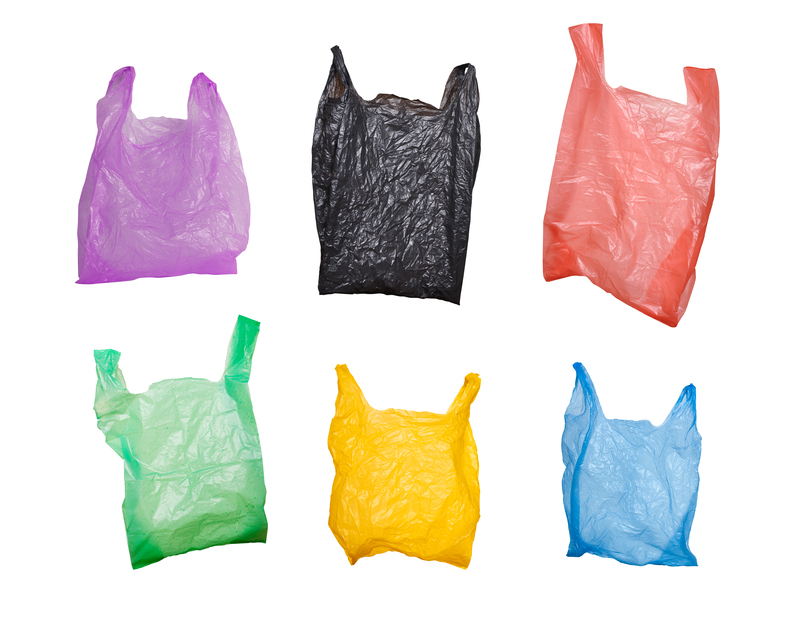Best Practices for Garden Waste Reduction
Posted on 17/06/2025
Best Practices for Garden Waste Reduction
Gardening is an incredibly rewarding activity, offering numerous benefits to both humans and the environment. However, it can often result in substantial waste, which, if not managed properly, can contribute to environmental pollution and unnecessary clutter in our gardens. This article aims to outline the best practices for reducing garden waste effectively, ensuring your gardening efforts are sustainable and eco-friendly.
Understanding the Types of Garden Waste
Before delving into waste reduction techniques, it is essential to understand the types of garden waste that you might encounter. Garden waste can be broadly categorized into two types: organic and inorganic.
- Organic Waste: This includes grass clippings, leaves, branches, weeds, and other plant materials. Organic waste is biodegradable and can be recycled into compost.
- Inorganic Waste: This consists of non-biodegradable items such as plastic pots, garden tools, broken garden furniture, and other synthetic materials.

Reduce, Reuse, Recycle: The Three R's of Garden Waste Management
The principles of Reduce, Reuse, and Recycle can be applied to garden waste management just as effectively as they are applied to other types of waste. Here's how:
Reduce
1. **Efficient Planting:**
Plant perennials and slow-growing plants that require less frequent trimming and maintenance. These plants often produce less waste over time.
2. **Smart Watering Practices:**
Soil erosion and over-watering can lead to more green waste. Use efficient watering systems like drip irrigation to minimize water use and potential waste.
Reuse
1. **Grasscycling:**
Leave grass clippings on your lawn after mowing. They will decompose naturally, returning valuable nutrients to the soil.
2. **Mulching:**
Reuse fallen leaves and small branches as mulch. Mulching helps retain soil moisture, suppresses weeds, and provides nutrients to the soil as it decomposes.
Recycle
1. **Composting:**
Composting is one of the most effective ways to recycle garden waste. Gather your organic garden waste and compost it to create rich, nutrient-dense soil.
2. **Community Recycling Programs:**
Some communities offer specific recycling programs for garden waste, helping ensure that materials like plastic pots and broken tools are recycled properly rather than ending up in landfills.
Implementing a Composting System
Composting transforms organic garden waste into black gold--a nutrient-rich material that can significantly improve soil quality. Here's how to set up an efficient composting system in your garden:
Choose a Composting Method
Several composting methods can be employed, depending on your space and resources:
1. **Traditional Compost Pile:**
Ideal for larger gardens, a traditional compost pile requires a mix of green waste (e.g., grass clippings) and brown waste (e.g., fallen leaves) to decompose efficiently.
2. **Compost Bins:**
These are more suitable for smaller gardens or urban settings. Compost bins help contain your compost and speed up the decomposition process.
3. **Vermicomposting:**
Employs worms to break down organic waste into high-quality compost. This method is excellent for small spaces and can be done indoors as well.
Layering Your Compost
To ensure efficient decomposition, layer your compost materials. A rule of thumb is to alternate between green waste, which is high in nitrogen, and brown waste, which is high in carbon.
Maintain Your Compost Pile
Turn your compost pile regularly to aerate it and speed up the decomposition process. Also, keep it moist but not too wet.
Incorporating Mulching Practices
Mulching is the process of covering the soil with organic or inorganic materials to enhance its quality. It's a great way to reduce garden waste by reusing organic materials.
Types of Mulch
1. **Organic Mulch:**
Includes materials like straw, grass clippings, shredded leaves, and compost. Organic mulches decompose over time, enriching the soil.
2. **Inorganic Mulch:**
Composed of materials such as pebbles, stones, or ground covers. While these do not decompose, they can offer benefits like weed suppression and moisture retention.
Benefits of Mulching
Mulching offers numerous benefits including:
1. **Moisture Retention:**
Mulch helps retain soil moisture, reducing the need for frequent watering.
2. **Weed Control:**
By blocking sunlight, mulch minimizes weed growth, reducing the need for synthetic herbicides.
3. **Soil Enrichment:**
As organic mulches decompose, they add essential nutrients back into the soil, improving its fertility.
Avoiding Single-Use Garden Materials
Reducing the use of single-use plastic and synthetic materials in the garden is crucial for waste reduction.
Opt for Reusable Containers
Instead of plastic pots, consider using biodegradable pots or containers made from sustainable materials. These not only reduce waste but can also be planted directly into the soil.
Invest in Durable Tools
Choose high-quality, durable gardening tools that last longer and are less prone to breaking. Though they may have a higher upfront cost, they will save money and reduce waste in the long run.

Involve Your Community
Garden waste reduction doesn't have to be a solitary effort. Engaging with your local community can amplify the impact of your eco-friendly practices.
Community Clean-Up Events
Organize or participate in community clean-up events focused on garden and green waste. These events foster community spirit and contribute to a cleaner, greener neighborhood.
Share Resources
Consider sharing resources like compost bins, mulching machines, and gardening tools with your neighbors. This not only reduces the demand for new materials but also fosters a sense of community.
Educate Others
Share your knowledge of garden waste reduction with friends, family, and neighbors. Inform others about the benefits of composting, mulching, and recycling to inspire more individuals to adopt sustainable gardening practices.
Conclusion
Reducing garden waste is integral to maintaining a sustainable and eco-friendly garden. By understanding the types of garden waste and implementing practices such as composting, mulching, reducing single-use items, and involving the community, you can significantly minimize waste and contribute to environmental conservation. With these best practices in place, you can enjoy a thriving garden that benefits both you and the planet.










